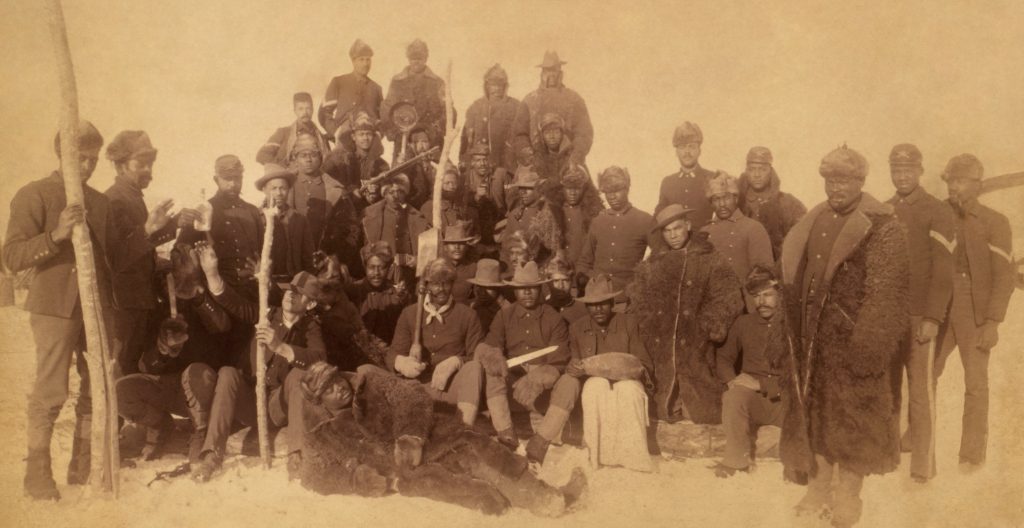
Buffalo Soldiers of the 25th Infantry. Library of Congress
How to register:
We offer two field trip scheduling options:
- Select a field trip from the Museum’s public event schedule
- Request to schedule a field-trip at a time that meets your group’s schedule
Audience:
All audiences. Content appropriate for Grades 6-12.
Goal: Recognize the commitment, challenges, and sacrifices of Buffalo Soldiers on the American frontier and overseas.
Program Description:
Generations of African Americans have fought for the protection of the United States, but it would not be until the Civil War that they would serve in an official capacity. Due to their exemplary service, a Congressional Act passed on July 28, 1866 that created six new regiments comprised of all black enlisted men with predominately white officers. Later condensed to four regiments, they would come to be known as the “Buffalo Soldiers.”
These Soldiers played a decisive role in the U.S. Army on the western frontier and overseas operations. The courage and determination of the Soldiers in spite of segregation at home would pave the way towards achieving integration and full civil rights in the future.
In this Virtual Field Trip, examine the commitment, challenges, and sacrifices of Buffalo soldier immediately following the Civil War and continuing through the Spanish American War. This Virtual Field Trip is supported by the U.S. Army Women’s Museum and the Frontier Army Museum.
Objective: At the end of this lesson students, will be able to
- Recognize the commitment, challenges, and sacrifices of Buffalo Soldiers.
- Understand how African Americans have used military service as a strategy to advance civil rights.
- Describe the U.S. Army’s role in westward expansion and the Indian Wars.
Guiding Questions:
How did African American Soldiers use military service to expand civil rights?
Curriculum Connections
Common Core Standards
- CCSS.ELA-LITERACY.RH.6-8.2
Determine the central ideas or information of a primary or secondary source; provide an accurate summary of the source distinct from prior knowledge or opinions.
History and Social Science Standards of Learning for Virginia Public Schools
- Virginia and United States History
- VUS.9 The student will apply history and social science skills to analyze the major turning points of the Civil War and Reconstruction eras by
- G) analyzing the effects of prejudice, discrimination, and “Jim Crow” laws including, but not limited to the responses of Booker T. Washington and W.E.B. DuBois, lynching and racial terror, race riots, the suppression of voting rights in Virginia and other Southern states, Ida B. Wells-Barnett’s anti-lynching crusade, the practice of eugenics, and the U.S. Supreme Court 1927 Buck v. Bell decision.
- VUS.9 The student will apply history and social science skills to analyze the major turning points of the Civil War and Reconstruction eras by
Your message has been submitted.
